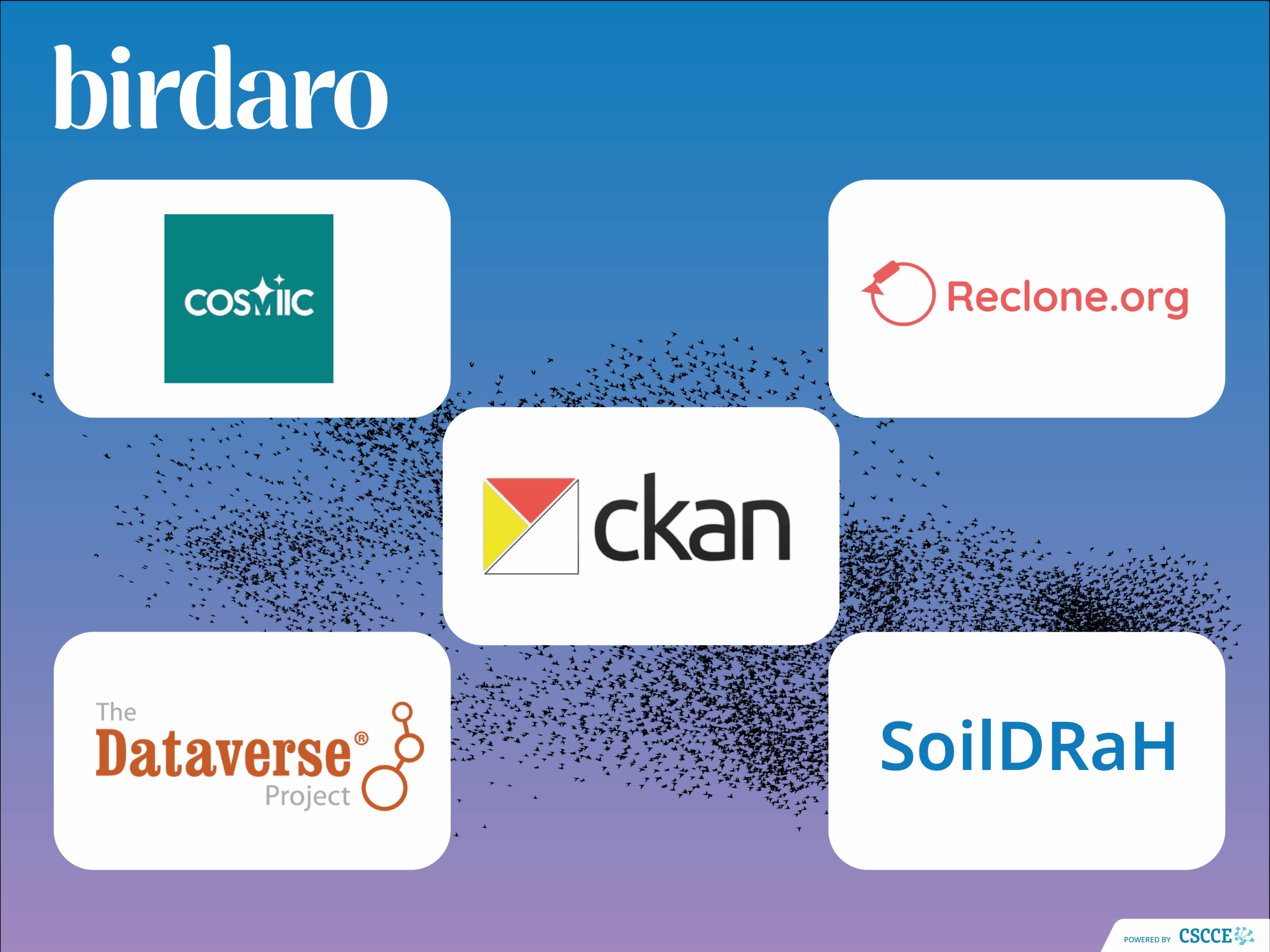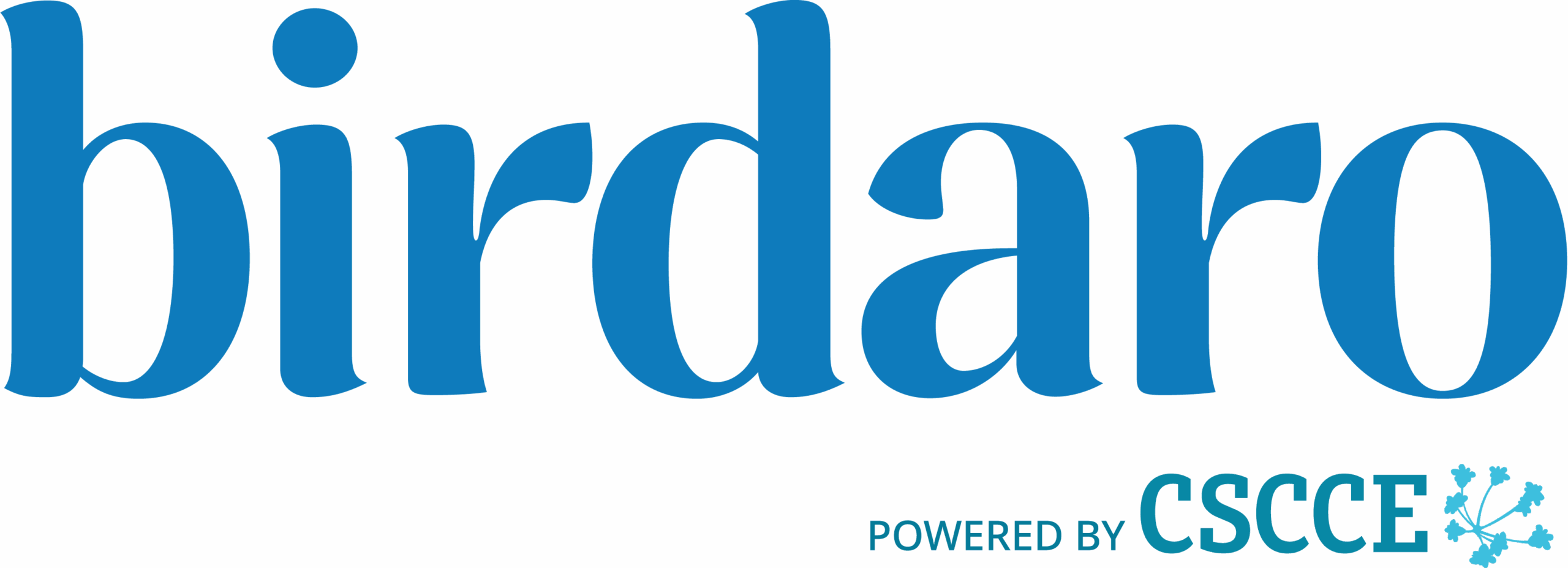Introducing the inaugural Birdaro training program cohort: Part 3
At the end of last month we launched the pilot cohort of the Birdaro training program for open-source leaders, which will run for 12 weeks until mid-December 2025.
Thanks to strong interest in the program, we have put together a cohort that represents a variety of focus areas, fiscal homes, project stages and project sizes. You can read more about how we intentionally built this cohort of participants, and used their input to iteratively shape the pilot curriculum in an earlier blog post.
In this series of five blog posts, we’re introducing you to the teams taking part in the Birdaro 2025 pilot cohort. In this post, we’re featuring the following open hardware and open data projects:
- COSMIIC – Creators of the world’s first fully open source active implantable medical device for use in neurological settings
- Reagent Collaboration Network (Reclone) – Helping individuals make and use basic molecular biology reagents locally
- CKAN – One of the most established open source data management systems in the world
- The Dataverse Project – An open source web application to share, preserve, cite, explore, and analyze research data
- Soil Data Rescue and Harmonization (SoilDRaH) – A data harmonization project to support the liberation and use of soil data from archival documents
You can read more about each of these projects below, and visit this page of the Birdaro website to learn more about individual team members.

Project bios
Project bios are based on information provided by the project teams during the application and registration process.
COSMIIC – open source implantable devices
COSMIIC has released the world’s first fully open source active implantable medical device, solving a key barrier in the field of neurotechnology: the lack of accessible, customizable tools for prototyping and proof of concept of human-ready therapies. The COSMIIC System supports both preclinical research and the transition to human applications by providing neural stimulation and recording capabilities alongside open regulatory documentation. As a relatively new project, COSMIIC is currently exploring models for managing documentation and user support at scale, as well as strategies for forming partnerships with academic, clinical, and commercial entities.
Reagent Collaboration Network (Reclone)
Reclone has a vision where all biologists have equitable access to the reagents and tools they need to discover, build, and innovate with biology. Reclone is currently establishing regional reagent distribution hubs (in predominantly low-/middle-income countries or low-resource contexts) for sharing physical and digital DNA parts and collections. The intention of which is to enable researchers to reliably and affordably make and use basic molecular biology reagents locally, without depending on lengthy and costly supply chains in order to carry out their research. While participating in Birdaro, Reclone team members plan to focus on making their DNA Collections more available to their users, and to better understand how they are using the collections.
CKAN
CKAN is the world’s leading open source data management system. It is used by several hundred governmental and non-governmental organizations around the world as an open data catalog and repository. With a newly-funded grant from the US NSF’s Pathways to enable Open Source Ecosystems (POSE), CKAN is currently focusing on creating clearly-defined onboarding pathways, developing new structures for community participation, and expanding adoption and supporting continued use. Alongside these user-focused goals, the team is also exploring how best to financially support the project in the future.
Dataverse Project
Based at the Arctic University of Norway, the Dataverse Project is an open source web application to share, preserve, cite, explore, and analyze research data. Researchers, journals, data authors, publishers, data distributors, and affiliated institutions all receive academic credit and web visibility. As the Dataverse Project continues to grow in popularity and adoption worldwide, the team are facing challenges common to many open-source software communities—particularly around sustainable governance, financial resilience, and long-term community engagement.
Soil Data Rescue and Harmonization (SoilDRaH)
Soil Data Rescue and Harmonization (SoilDRaH) seeks to make soil data from previous research and collection campaigns more accessible for reanalysis. They do this through a combination of workflow protocols and software development that takes data from an archive format (e.g., a published PDF article) to a machine readable tabular or graphical data set. The team is currently focusing on formalizing a decentralized governance structure that will support them as they work towards financial sustainability.
Additional information
- You can also explore individual participant bios, on the Birdaro website.
- You can find out more about the curriculum we’ve developed to support the pilot cohort participants’ shared interest in governance and documentation here.
Check out the other participating projects
Post 1: OpenWellness, movement, Open Source with SLU, and the Community Software Facility (NCAR)
Post 4: The R Project, RSpace, AsyncAPI, OpenRefine, and Scikit-learn
Post 5: CIB Mango Tree, MNE-Python, ArviZ, icepyx, and OpenMRS





